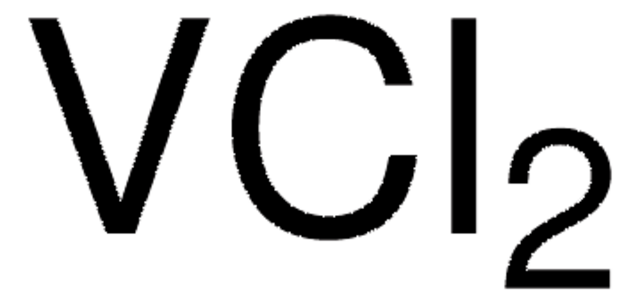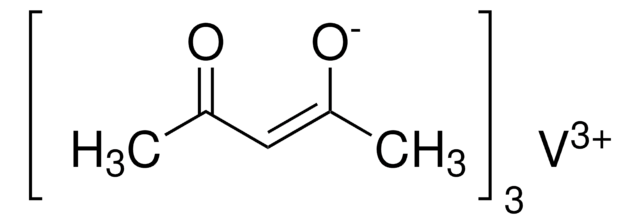208272
Vanadium(III) chloride
97%
Synonym(s):
Vanadium trichloride
About This Item
Recommended Products
Quality Level
Assay
97%
form
powder
reaction suitability
reagent type: catalyst
core: vanadium
density
3 g/mL at 25 °C (lit.)
application(s)
battery manufacturing
SMILES string
Cl[V](Cl)Cl
InChI
1S/3ClH.V/h3*1H;/q;;;+3/p-3
InChI key
HQYCOEXWFMFWLR-UHFFFAOYSA-K
Looking for similar products? Visit Product Comparison Guide
General description
Application
Signal Word
Danger
Hazard Statements
Precautionary Statements
Hazard Classifications
Acute Tox. 4 Oral - Eye Dam. 1 - Skin Corr. 1B
Supplementary Hazards
Storage Class Code
8A - Combustible corrosive hazardous materials
WGK
WGK 3
Flash Point(F)
Not applicable
Flash Point(C)
Not applicable
Personal Protective Equipment
Certificates of Analysis (COA)
Search for Certificates of Analysis (COA) by entering the products Lot/Batch Number. Lot and Batch Numbers can be found on a product’s label following the words ‘Lot’ or ‘Batch’.
Already Own This Product?
Find documentation for the products that you have recently purchased in the Document Library.
Customers Also Viewed
Our team of scientists has experience in all areas of research including Life Science, Material Science, Chemical Synthesis, Chromatography, Analytical and many others.
Contact Technical Service









